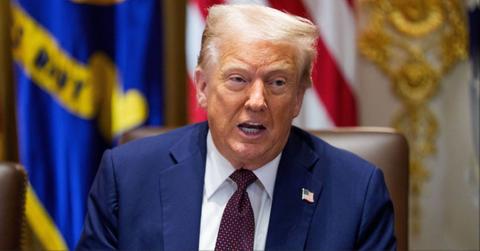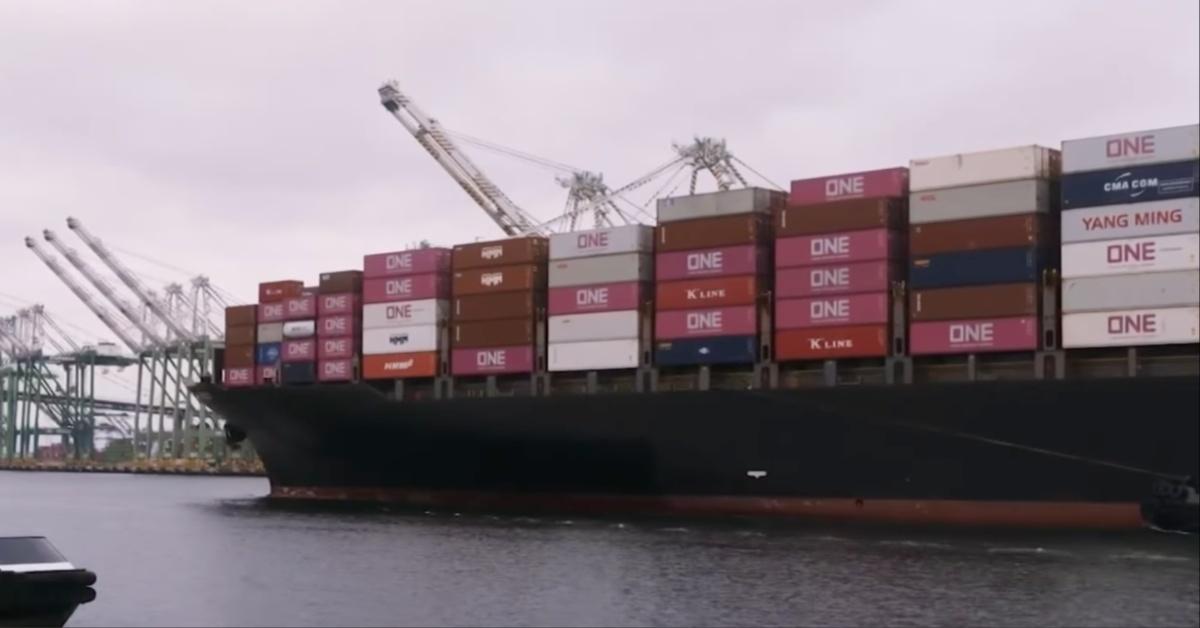Duty-Free Trade Exemption Ends as Trump Jumps the Gun on Trade Law — Is De Minimis Gone?
The exemption was supposed to end in 2027.
Published Aug. 29 2025, 4:18 p.m. ET

A trade exemption that allowed goods worth less than $800 to enter the United States duty-free ended after an executive order by President Donald Trump went into effect on Aug. 29, 2025. According to CNBC, the global trade law known as the de minimis exemption was not supposed to end until the summer of 2027.
The United States International Trade Commission describes the word de minimis as meaning "trifling or of little importance," per NPR, and it was part of the Tariff Act of 1930. The trade law was meant to minimize customs processing and inspections, and it waived companies' taxes and import tariffs on small-value goods.

Is de minimis gone?
Yes, as of Aug. 29, 2025, de minimis is gone — courtesy of the president and his executive order. Trump claimed the duty-free exception was a threat to national security back in July, claiming the law allowed for drug traffickers to send shipments containing fentanyl undetected.
However, according to Reuters, Trump's order will increase the cost for retailers globally, and it will increase the price of imported goods for American consumers.
"It's very important, de minimis. It's a big deal," said the president. "It's a big scam going on against our country, against really small businesses, and we've ended it. We put an end to it."
Lori Wallach from the American Economic Liberties Project claims that the end of the law is better for consumers over time. "Getting rid of de minimis will mean that packages get a more thorough inspection," she claimed. "Now, this will all go through normal channels, which is much better for consumers."
Here are the countries not shipping to the U.S.
According to Money magazine, the end of the trade law could raise tariffs at least 10 percent and up to 50 percent, leaving American consumers to pay the price. Japan, Germany, Canada, and Mexico announced that they would pause U.S.-bound shipments as the law took effect. Mexico's government, in particular, said that the paused shipments wouldn't end until "new operational processes are defined."
Trump ended de minimus for China in May, which resulted in the popular online retailer Temu's American sales dropping by nearly half.
Switzerland also announced a pause in shipments to the U.S., according to a press release.
"Swiss Post will temporarily be unable to accept any postal goods consignments to the USA," read the release. "This is due to the US government’s new customs regulations, which affect all postal companies worldwide."
India has paused shipments to America as well.
Small businesses online with eBay, Shopify, and Etsy are also affected by the end of de minimis and will likely need to raise prices and pass the cost onto consumers. President Trump's decision to end the trade law early could cost American consumers approximately $10.9 billion.
An owner of a Canadian bridal accessories company, Blair Nadeau, wrote on Instagram that she's already had to turn away U.S. customers over the end of de minimis.
"This is devastating on so many levels, and millions of small businesses worldwide are now having their careers, passions, and livelihoods threatened," she wrote. "Just this past hour I have had to turn away two U.S. customers, and it broke my heart. ... It’s like all of a sudden 70 percent of your salary has been removed overnight."